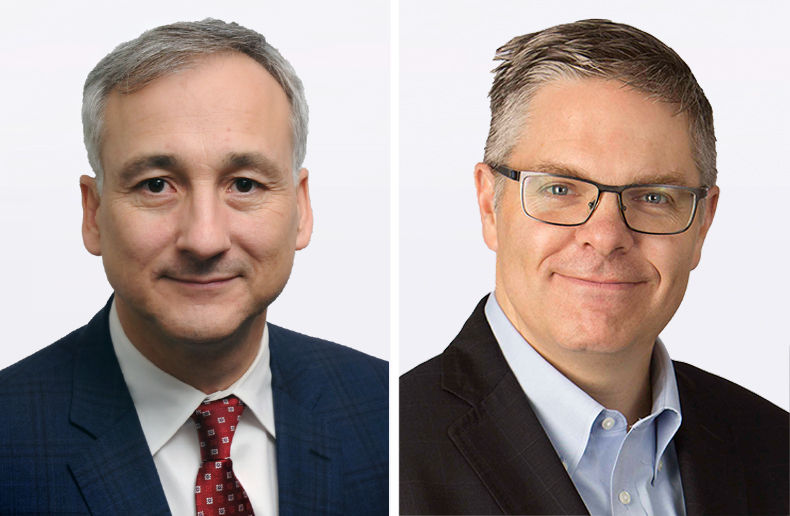“The pandemic has been a year of learning,” says Bernard Lord, CEO of Medavie, during a webinar called Leading Forward: Moving from Disruption to Transformation, broadcast April 21.
It took flexibility, resilience, openness and listening skills to get through the crisis, but it was the uncertainties that allowed us to strengthen our corporate values and our transformation, Lord adds.
The pandemic environment made the insurer realize that its members want to be more involved in the development of their group insurance and health care programs. “Patients are looking to become more active in their own health care decisions,” says Bernard Lord.
Future lies in self-service
Modern group insurance plan design will rely on digital technology to develop products, assess claims, make or respond to claims settlements, and be more responsive to employees' expectations and needs, says Eric Laberge, President of Medavie Blue Cross.
“Basic benefits plans are no longer the norm. Flexibility, personalization and integration are key concepts. Health spending accounts, personal spending accounts and optional benefits give employees greater choice over how they contribute to their well-being and their plan,” Laberge continues.
In addition, in the coming years the insurer intends to build customer spaces that are as intuitive as online shopping. “Employees increasingly prefer self-service options that will include web-based health portals, on-demand teleconsultation, and one-stop accessibility to healthcare," he says.
Health benefit needs are as diverse as the demographics of the population. They must be considered when designing new programs, Laberge said during the webinar. Flexibility, options, integrations and customization will be major issues in the design of the insurance plans of tomorrow, he predicts.
Virtual care is here to stay. Demand is too great, Lord adds.
Communication is crucial
The pandemic has brought employees’ health and wellness needs into sharp focus, Lord continues. Mental health has been one of the most important elements for Medavie, he says. During the crisis, the insurer strived to communicate more internally and externally to minimize uncertainty and reduce its’ workers’ exposure to stress, but also to help them maintain a work-life balance.
The pandemic has reinforced the idea that employees are a fundamental pillar for Medavie. Our employees are our most important asset and they are the only asset that does not depreciate. It is thanks to them that we have been able to manage our insurance company, Laberge explains.
The current context is laying the foundations of the future work environment, he adds. Once the health crisis is over, not all employees will go back to the office. “We will have three types of employees: those that will work mainly from the office; those who will work primarily from home; and the hybrids," explains Laberge.
Had we asked our teams 18 months ago, ‘do you think we could function almost as well with 99 per cent of employees working remotely,’ I'm sure they would have all said no. Yet, in just a few days, we went from 0 per cent to 99 per cent remote employees and it's working great. This proves that we are all capable of adapting, Bernard Lord points out. This ability was critical during the pandemic and will be just as important in the post-pandemic period, he says.
The crisis posed threats but also created an opportunity to do things better, Laberge says.
At the beginning of the crisis, Medavie based its survival plan on six core principles that it considered fundamental: Keep everyone safe, which means ensuring the physical and mental well-being of all employees, patients, members and partners; continue to provide their services and products that its partners depended on; preserve capital above regulatory levels; avoid layoffs of permanent staff; continue to support its community; and prepare for post-pandemic recovery.















